
Our Addiction Resources
Navigating the world of addiction and recovery can be overwhelming. We’re here to provide clear, compassionate education and guidance. From practical advice for maintaining sobriety to informational guidance on the long-term effects of substance abuse, our content is a beacon of hope and understanding.
Our Team is Ready are ready to take your call
Call us Today!
or we can call you. Fill out form below
Our Blog
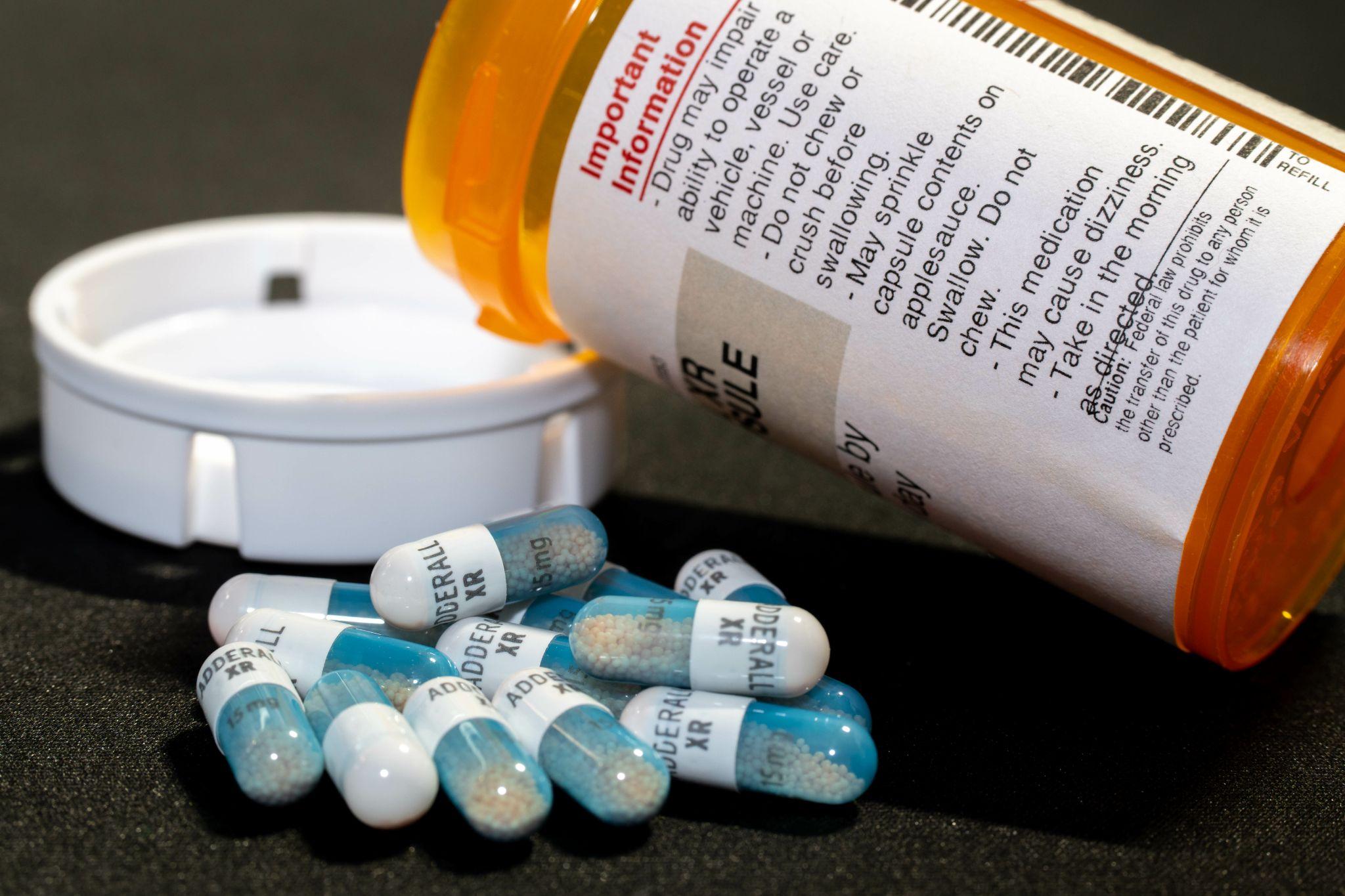
Is Adderall Addictive?
Adderall is a prescription medication commonly used to treat attention-deficit/hyperactivity disorder (ADHD), based on criteria from the Diagnostic and Statistical Manual of Mental Disorders.
Its effectiveness in enhancing focus and productivity makes it not only a valuable therapeutic tool but also a substance with potential for misuse.
Explore the addictive nature of Adderall, providing insights for those who might be struggling with its use or for loved ones seeking to understand and help.
Components of Adderall
Adderall is more than just a popular medication for ADHD. It’s a Schedule II controlled substance, which means it is recognized as having a high potential for abuse. The drug is also a blend of two potent stimulants: prescription amphetamine and dextroamphetamine.
These stimulants increase the availability of neurotransmitters like dopamine and norepinephrine in the brain, enhancing focus, attention, and alertness. It’s commonly prescribed to individuals who have difficulty controlling their ADHD symptoms, helping them to achieve a better quality of life.
However, the way Adderall alters brain chemistry is also what lends to the potential misuse of the drug. When used correctly and under medical supervision, Adderall is safe and effective. But it’s this very effectiveness that can sometimes lead to its misuse.
The Addictive Potential of Adderall
As a stimulant, Adderall can indeed be habit-forming, particularly when used outside the bounds of medical guidance. The drug increases dopamine levels in the brain, a neurotransmitter associated with pleasure, motivation, and reward.
This chemical alteration can induce a sense of euphoria, especially when taken in higher doses than prescribed. It’s this euphoric effect that can lead to a psychological dependence on the drug, as users may seek to replicate that feeling.
The risk of developing a substance use disorder increases significantly when Adderall is used recreationally, which is common among college students, or by individuals for whom it was not prescribed. Also, the development of tolerance (where more of the drug is required to achieve the same effect) is a main indication of its addictive potential.
Recognizing Signs of Addiction
Recognizing addiction to Adderall involves a keen observation of various behavioral, physical, and psychological signs. These signs of Adderall addiction serve as a warning that immediate attention is needed.
Behavioral Changes
A significant indicator of addiction is a noticeable shift in behavior. This may include an increased preoccupation with obtaining and using Adderall, and neglecting social, occupational, or recreational activities once enjoyed. There might be a tendency to isolate from family and friends, especially if they are likely to express concern about the individual’s drug use.
Physical Symptoms
Physical symptoms are often telling signs of Adderall addiction. These may include noticeable weight loss due to decreased appetite, trouble falling asleep, irregular sleep patterns, and physical agitation or restlessness. Over time, individuals may also experience health issues like cardiovascular problems, headaches, and dizziness.
Psychological Signs
Psychological symptoms of Adderall addiction are often the most telling. These include increased anxiety, irritability, and mood swings. In severe cases, prolonged misuse can lead to symptoms of paranoia or hallucinations. A noticeable sign is the continuation of Adderall use despite being aware of its negative impact on mental health.
Tolerance and Withdrawal
Building a tolerance and needing larger doses of Adderall for the same effects is a clear sign of addiction. Alongside tolerance, withdrawal symptoms such as depression, fatigue, and a significant increase in appetite when not using the drug, are indicative of physical dependence.
Neglect of Responsibilities
Addiction often leads to neglecting important responsibilities. This could manifest as declining performance at work or school, neglecting household duties, or failing to meet family obligations due to Adderall use.
Risky Behavior
Engaging in risky behavior, such as driving under the influence of Adderall or using the drug in hazardous situations, is a common sign of addiction. Additionally, individuals might engage in risky activities to obtain the drug, such as buying it illegally or doctor shopping.
Risk Factors for Adderall Addiction
Individuals with a personal or family history of substance abuse are at a higher risk of developing an addiction to Adderall. This includes previous addiction to alcohol, illicit drugs, or prescription drugs.
The way Adderall is used significantly influences the risk of addiction. Using Adderall without a prescription or in ways not intended by a healthcare provider dramatically increases the risk.
Psychological factors play a role too. People dealing with stress, depression, or anxiety may turn to Adderall for temporary relief, inadvertently paving the way for addiction. Additionally, environmental factors such as peer pressure or being in settings where drug misuse is common can contribute to the development of an Adderall addiction.
Impact of Long-Term Use
The long-term use of Adderall, especially when misused, can lead to a host of health problems. Chronic use can cause cardiovascular issues, such as high blood pressure and increased heart rate, potentially leading to more severe conditions like heart attacks or strokes.
Mental health can also be significantly affected. Prolonged misuse may exacerbate underlying mental health disorders or lead to the development of new ones, such as depression, anxiety, or psychosis.
Cognitive impairments, including difficulty in concentrating and memory problems, can also occur. It’s important to recognize these risks and consult with healthcare professionals if such symptoms arise.
Getting Help

Seeking help for Adderall addiction is a crucial step towards recovery. The process often starts with professional counseling or therapy, which can address both the addiction and any underlying mental health issues.
Rehabilitation programs, both inpatient and outpatient, offer structured treatment and support. Joining support groups can provide a sense of community and shared experiences, aiding in the recovery process.
In some cases, medication-assisted treatment (MAT) may be appropriate, offering medical support to reduce withdrawal symptoms and manage cravings.
Prevention and Safe Use
Preventing Adderall addiction starts with its responsible use. This means strictly adhering to the prescription and guidance provided by healthcare professionals. Regular medical check-ups can help monitor the use of Adderall and its effects, allowing for adjustments in dosage or treatment as needed.
Education, through understanding the risks associated with Adderall and learning how to use it safely, is also a powerful tool in prevention. It’s also important for those prescribed Adderall to be open with their healthcare providers about their medical history and any other substances they are using. Creating an environment of awareness and open communication can significantly aid in the safe use of Adderall.
Find Out More About Adderall and Addiction With Lumina Recovery
Adderall, while an effective treatment for ADHD, carries the risk of addiction. Recognizing the signs of addiction, understanding the risks, and seeking help if needed are crucial steps.
Lumina Recovery offers detox programs, prescription drug addiction services, and medication-assisted treatment (MAT) to help those with an Adderall addiction.
Our team of professionals is ready to help you and your loved ones. Reach out today to learn more about steps toward recovery.
Disclaimer: This article is intended for educational purposes only and should not be taken as medical advice. If you or someone you know is struggling with Adderall use or addiction, please consult a healthcare professional for proper diagnosis and treatment.

Opioid Withdrawal: What You Need to Know
Experiencing or witnessing a loved one go through opioid withdrawal can be a challenging and often frightening process. Opioids, a class of drugs used to relieve pain, can lead to physical dependence and addiction.
When someone stops or reduces their use of opioids, they may experience withdrawal symptoms. Lumina Recovery provides essential information about opioid withdrawal symptoms and timelines to help individuals and their loved ones understand what to expect and how to manage these symptoms effectively.
The Journey of Opioid Withdrawal
Opioid withdrawal is the body’s response to the absence of opioids after a period of regular use. When opioids are used consistently, the body becomes dependent on these substances to function normally and presents drug cravings. This dependency is both physical and psychological. Once the regular use of opioids stops or significantly reduces, the body begins to experience a range of symptoms known as withdrawal.
The intensity of opioid withdrawal varies depending on the type of opioid used, the duration and amount of use, individual health factors, and the method of cessation. Withdrawal symptoms are a reflection of the body trying to readjust to functioning without the drug. This period is challenging but is a crucial phase in the journey towards recovery.
Withdrawal is a normal part of overcoming opioid addiction and can help individuals and their loved ones prepare for the process. It’s important to approach this phase with support and, if possible, under medical supervision to ensure safety and increase the chances of successful recovery.
Symptoms of Opioid Withdrawal
Opioid withdrawal symptoms can be classified into two main categories: physical and psychological. The severity and duration of these symptoms can vary, but they are typically at their peak within the first few days after stopping opioid use.
Physical Symptoms
- Muscle aches
- Restlessness
- Insomnia
- Diarrhea and vomiting
- Cold flashes
- Goosebumps
- Tremors
Psychological Symptoms
- Anxiety
- Irritability
- Mood swings
- Difficulty concentrating
- Depression
- Cravings
These symptoms, while uncomfortable and sometimes painful, are a normal part of the withdrawal process. It’s crucial to remember that they are temporary and will decrease in intensity over time. During this period, it’s vital to have support and medical care to manage these symptoms effectively and safely to avoid life-threatening complications.
Opioid Withdrawal Timeline
The timeline of the opioid withdrawal period can vary significantly from person to person, but there are general stages that most individuals experience.
It is also important to note that the withdrawal symptoms timeline can differ significantly between short-acting opioids and long-acting opioids (or extended-release opioids) due to the duration of action of these drugs in the body.
Understanding this timeline helps in preparing for what lies ahead.
Early Stage (6-12 hours after the last dose)
This stage typically starts within hours after the last opioid use. Common early symptoms include muscle aches, agitation, anxiety, and insomnia. This is the body beginning to react to the absence of the drug.
Peak Stage (1-3 days after the last dose)
After 24 hours, this is when the symptoms are at their most intense. Individuals may experience severe nausea, vomiting, diarrhea, and intense cravings. Psychological symptoms like anxiety and depression are also heightened during this period. This stage is often the most challenging and where support and medical detox programs are crucial.
Subsiding Stage (1 week and beyond)
After the peak, symptoms generally start to lessen in intensity. Physical symptoms may subside more quickly, but psychological symptoms like mood swings, anxiety, and cravings may persist for a longer period.
This stage can vary in duration, with some individuals experiencing lingering symptoms for weeks or even months, known as post-acute withdrawal symptoms (PAWS).
It’s important to note that these timelines are approximate and can vary based on the individual’s usage pattern, the type of opioid used, and personal health factors.
Managing Opioid Withdrawal

Effectively managing opioid withdrawal is key to a successful recovery process. There are several strategies and treatments that can help ease this challenging phase.
- A medically supervised detox treatment plan can provide a safe and controlled environment for managing withdrawal symptoms. Healthcare professionals can monitor vital signs and provide medications to ease symptoms and prevent complications.
- Medication-assisted treatment (MAT) involves the use of FDA-approved medications like methadone, buprenorphine, or naltrexone to reduce cravings and withdrawal symptoms. These medications work by acting on the same opioid receptors in the brain but are safer and less likely to produce harmful behaviors.
- Psychological and behavioral therapies are vital in managing opioid use disorders and the psychological aspects of withdrawal. Cognitive behavioral therapy (CBT) and other counseling approaches can help individuals develop coping strategies and address underlying issues related to opioid use.
- Techniques such as mindfulness, meditation, and yoga can be beneficial in managing stress and improving mental well-being during withdrawal.
- Maintaining a healthy diet, staying hydrated, getting regular exercise, and ensuring adequate sleep can all help the body recover and cope with the stress of withdrawal.
- Support from family, friends, support groups, or a recovery community can provide emotional support and encouragement, which is crucial during the withdrawal phase.
- Ongoing monitoring and aftercare are essential to prevent relapse, especially in the weeks and months following the initial withdrawal phase. This may include regular check-ins with a healthcare provider, continued therapy, and support group meetings.
Each individual’s experience with opioid withdrawal is unique, and their management plan should be tailored to their specific needs. It’s vital to consult with healthcare professionals who can provide guidance and support throughout the process, like our team at Lumina Recovery.
When to Seek Professional Help
Recognizing when to seek professional help is crucial during opioid withdrawal. If you or a loved one experiences severe symptoms such as extreme anxiety, deep depression, uncontrollable vomiting or diarrhea, intense cravings, or thoughts of self-harm, it’s essential to contact a healthcare provider immediately.
Additionally, underlying health conditions, like heart problems or mental health disorders, warrant professional oversight during withdrawal. Don’t hesitate to seek help—medical professionals can offer vital support and resources to safely navigate through withdrawal.
Navigate Opioid Withdrawal With Lumina Recovery
Opioid withdrawal is a challenging but crucial step towards recovery. Understanding the process, knowing what to expect, and getting the right support can make a significant difference.
The detox and opioid and fentanyl addiction services Lumina Recovery offers as well as medication-assisted treatment (MAT) are great options when starting the withdrawal and recovery process.
To learn more about the help you can get, reach out to our team today.
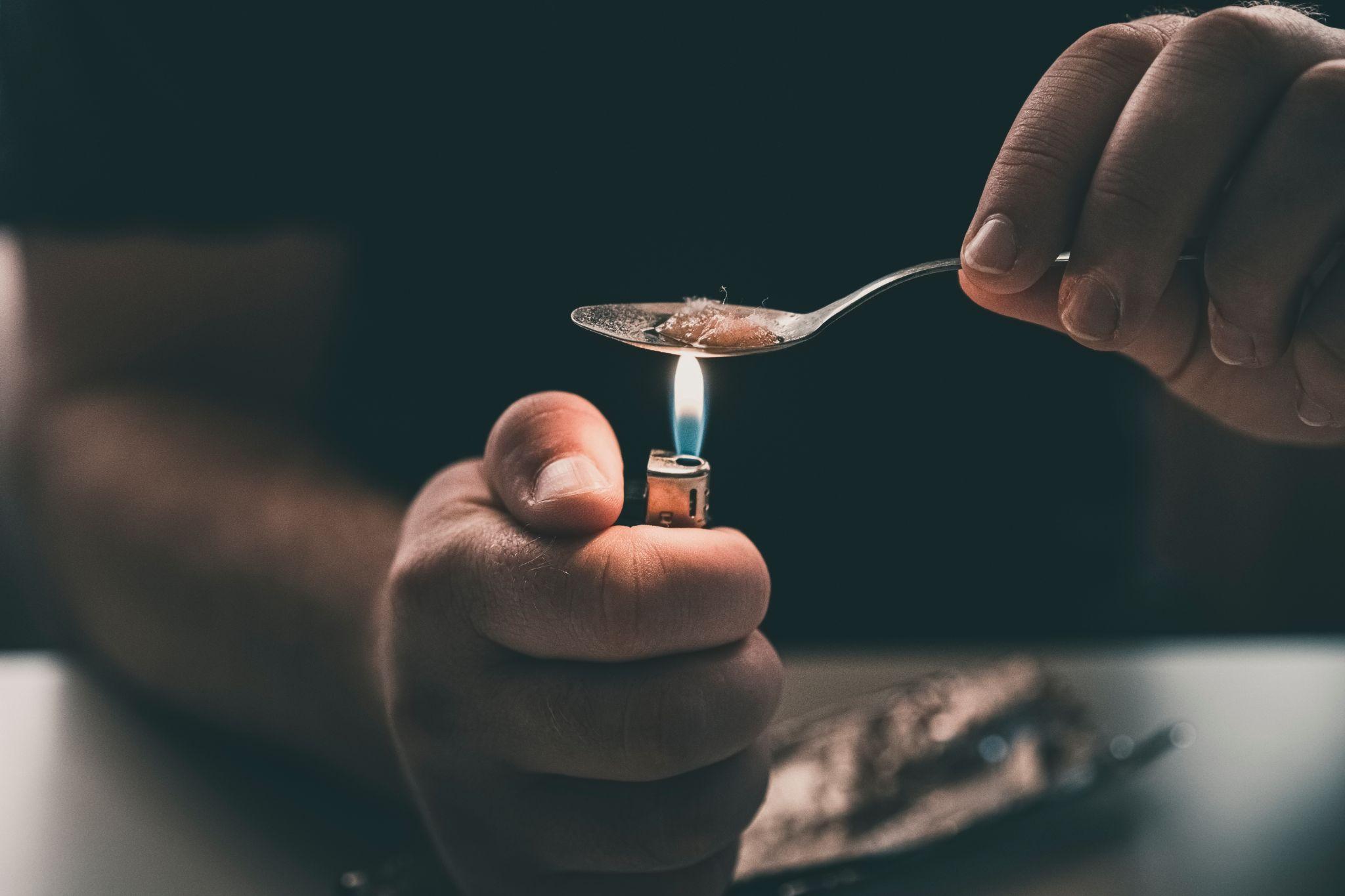
What Are the Long-Term Effects of Heroin?
Dealing with heroin use disorder, whether it involves you or someone you care about, can be a challenging journey. Heroin, a powerful and addictive opioid, has profound impacts not only on immediate health but also on the long-term well-being of individuals.
Below, we’ll share information on the long-term effects of heroin use, providing essential insight for individuals dealing with addiction and their loved ones.
Heroin and Its Impact
Heroin is an opioid that is a highly addictive drug processed from morphine, extracted from certain poppy plants. It’s known for its rapid onset of euphoria, which is why it’s often abused.
However, this initial short-term euphoria masks the serious health risks and the potential for addiction. Once heroin enters the brain, it is converted back into morphine. It binds quickly to opioid receptors, affecting feelings of pain and pleasure, as well as controlling heart rate, sleeping, and breathing.
The danger of heroin not only lies in its addictive potential but also in its ability to alter the brain’s chemistry. Repeated heroin use changes the way the brain functions, leading to tolerance and dependence. This alteration in brain function can have long-term implications on cognitive abilities and emotional stability.
Smoking heroin as well as injecting and snorting are common ways of ingesting it. Each method has its risks, but injection is particularly dangerous due to the risk of heroin overdose and the potential for contracting infectious diseases. The unpredictable purity and the presence of toxic additives in street heroin heighten the risk of life-threatening complications.
Heroin, or other opioid, overdoses include severe and sometimes irreversible effects, depending on the extent and duration of the lack of oxygen to the brain and other vital organs during the overdose. The physical and mental health consequences of heroin are serious, and knowledge of these effects is important.
Physical Health Consequences
Chronic Respiratory Issues. Heroin depresses the respiratory system. This can lead to decreased lung capacity, chronic pneumonia, and even tuberculosis due to a weakened immune system. Breathing difficulties are common, and in severe cases, users may experience life-threatening respiratory failures.
Cardiovascular Diseases. Frequent heroin use can cause collapsed veins and bacterial infections of the blood vessels and heart valves. Users are at a higher risk of developing chronic heart conditions, including endocarditis, an inflammation of the heart’s lining.
Liver and Kidney Disease. The contaminants in heroin and the overall lifestyle of addiction can lead to severe liver and kidney damage. These organs are critical for detoxifying the body, and their impairment can lead to significant health complications, including the risk of liver or kidney failure.
Gastrointestinal Problems. Dependence on heroin can slow down the digestive system, leading to chronic constipation, stomach cramping, and other gastrointestinal issues. Long-term use can severely disrupt the digestive process, leading to malnutrition and an imbalance in the body’s electrolytes.
Neurological Complications. People who use heroin for prolonged periods can have permanent brain damage, manifesting as memory lapses, diminished cognitive functions, and impaired decision-making abilities. This damage can have a lasting impact on an individual’s ability to function in daily life.
Sexual and Reproductive Health Issues. Heroin use affects sexual performance and reproductive health. Men may experience erectile dysfunction, while women might see disruptions in their menstrual cycle. Additionally, heroin use during pregnancy can lead to miscarriage, premature birth, and developmental issues in newborns.
Mental Health and Social Consequences
Mental Health Disorders. The link between heroin addiction and mental health is profound. Users often develop disorders like depression, anxiety, and antisocial personality disorder. The psychological toll of addiction can exacerbate existing mental health issues or lead to new ones.
Social Isolation and Relationship Struggles. Heroin addiction often leads to social withdrawal and isolation. Relationships with family and friends suffer as the addiction takes precedence. This isolation can compound feelings of depression and loneliness, creating a vicious cycle that fuels the addiction.
Increased Risk of Infectious Diseases. Sharing needles and other drug paraphernalia significantly increases the risk of transmitting HIV, hepatitis B, and hepatitis C. These infections can have long-term health implications and further complicate the recovery process.
Cognitive Impairment and Emotional Instability. Chronic heroin use can lead to difficulties in thinking clearly, problem-solving, and controlling emotions. This cognitive impairment affects personal and professional relationships and can hinder rehabilitation efforts.
Financial and Legal Problems. The cost of sustaining a heroin addiction often leads to financial strain. Users may find themselves in debt or engaging in illegal activities to fund their addiction. This can result in legal troubles, further complicating their social and professional lives.
Occupational and Educational Impact. Heroin addiction often derails careers and educational pursuits. The inability to focus, absenteeism, and reduced cognitive function can lead to job loss or academic failure, limiting future opportunities.
Preventing Long-Term Damage

Preventing the long-term damage caused by heroin involves several key strategies, the most important of which is early intervention.
Once addiction is recognized, seeking professional help is essential. Treatment programs for heroin addiction typically include a combination of medication-assisted treatment (MAT), counseling, and support groups. Medications such as methadone, buprenorphine, and naltrexone can help reduce cravings, side effects, and withdrawal symptoms. This makes it easier for individuals to focus on recovery and addiction treatment.
Counseling, both individual and group, plays a significant role in addressing the underlying causes of addiction and developing coping strategies to prevent relapse. Support groups provide a sense of community and understanding, which is crucial for long-term recovery.
For those in recovery, maintaining a healthy lifestyle, including physical activity, proper nutrition, and stress management, can help prevent relapse. Building a strong support network of family, friends, and peers who understand the challenges of addiction recovery is also vital.
Understanding the impact of heroin and taking proactive measures can prevent long-term damage and help individuals lead a healthier, substance-free life. It’s about making informed choices, seeking timely help, and supporting each other in the journey towards recovery.
Be Aware of the Effects of Heroin With Lumina Recovery
Heroin addiction carries with it a host of long-term effects that impact not just the individual but their loved ones and the wider community. Understanding these effects is important for anyone dealing with heroin addiction.
The medically assisted detox and heroin addiction programs Lumina Recovery offers are important parts of the recovery process.
Contact our team today to learn more about the services we offer for addiction recovery.
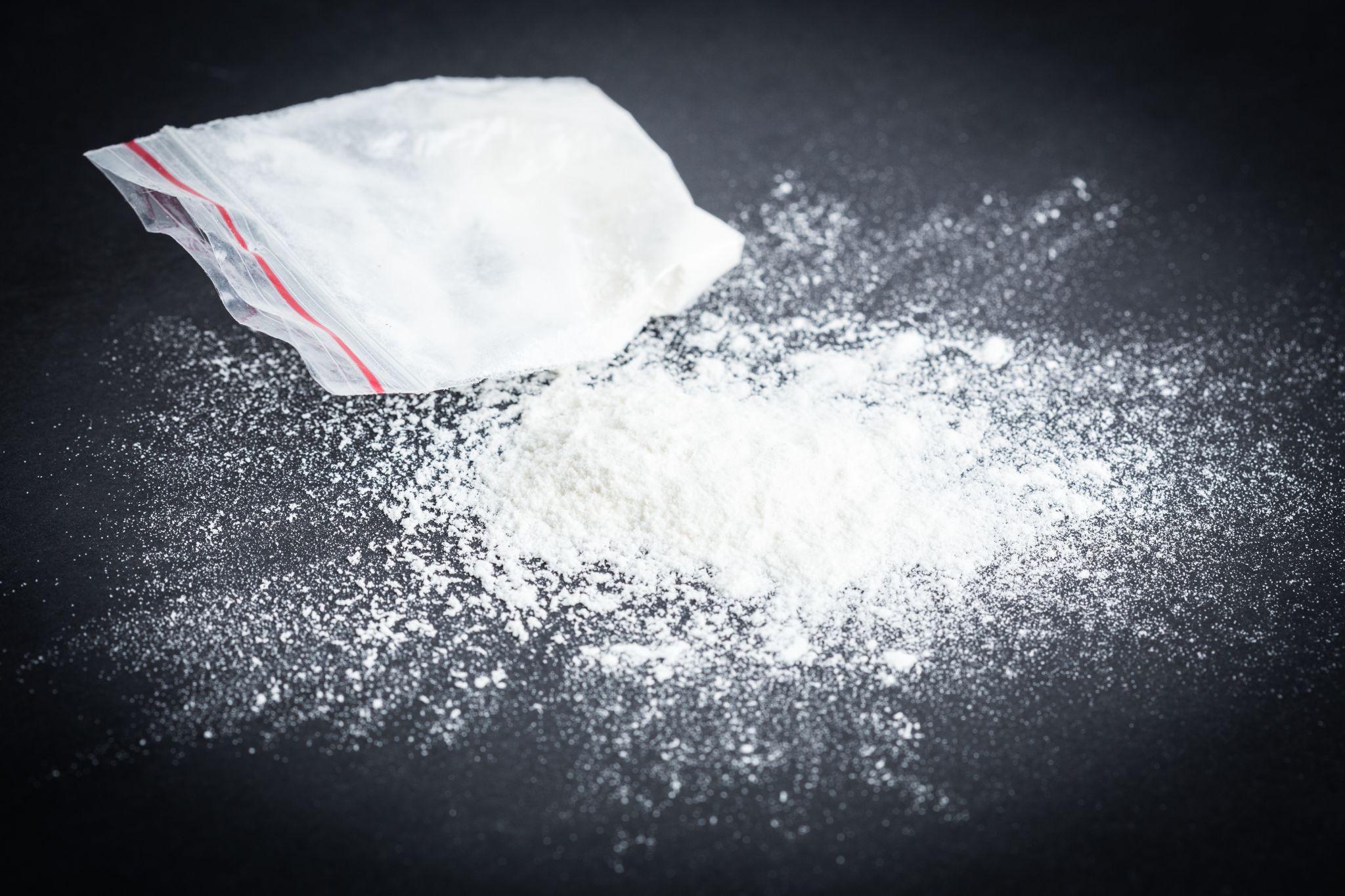
What Does Pure Heroin Look Like?
Heroin, a highly addictive and illegal drug, is a substance made from poppy plants that has impacted countless lives around the world. Its use and distribution are a major concern in many communities in the United States.
Understanding what heroin looks like is crucial in identifying its presence, which can be a first step in addressing issues related to its use.
Below, we hope to provide clear and accessible information about the appearance of heroin to help individuals and communities stay informed and vigilant.
Physical Form and Texture
Heroin’s physical characteristics can vary significantly, largely influenced by its manufacturing process and purity level. Here, we break down the most common types of heroin:
Powdered Heroin
While pure heroin is a white powder form, its color can range widely due to additives and impurities. Lighter shades like beige indicate a higher purity, whereas darker shades, including pink or brown, often result from additives like powdered milk.
Fine and soft to the touch, powdered heroin can have a flour-like consistency. Its solubility varies with purity—purer forms of heroin dissolve easily in water, making it a preferred form for injection.
Black Tar Heroin
Black tar heroin, named for its resemblance to roofing tar, has a dark brown to black coloration. It’s less refined, indicating a lower level of purity compared to white heroin.
This form is sticky and hard, often requiring dilution or heating on aluminum foil before use. Users may smoke or inject black tar heroin, but its impure nature increases long-term health risks, including vein damage and infections.
Brown Heroin
Brown powdered heroin sits between white powder and black tar in terms of purity. It ranges from light tan to dark brown and is more common in regions closer to its production sources.
Coarser and more crumbly than white heroin, brown heroin is often used for smoking due to its lower lipid solubility, making it less suitable for injection.
Regional Variations
The appearance and texture of street heroin can also depend on its geographical source. For example, heroin from Southeast Asia is typically white and highly pure, while South American heroin is often off-white or beige. Heroin from Southwest Asia and the Middle East can vary greatly in color and consistency.
Factors Affecting Appearance
The appearance of heroin is often altered by the addition of cutting agents like starch, powdered milk, or other drugs, which can change its color, texture, and purity.
The specific methods used to refine and process opium into heroin also play a significant role in determining the final product’s appearance and texture.
Packaging and Presentation
The way heroin is packaged and presented can vary, often depending on the distribution network and the target market. Understanding these packaging methods is important for identification.
Small Bags and Balloons
Small, resealable plastic bags are a common method for packaging powdered heroin. These bags are often clear, but can also be colored or have designs to distinguish different suppliers or purity levels.
Heroin is frequently sold in small balloons. Dealers use tiny pieces of balloons to wrap the drug, making it easier to swallow, hide, or dispose of if necessary. This method is particularly common in street-level transactions.
Glassine Envelopes
Glassine envelopes, known for their glossy and semi-transparent nature, are another popular packaging choice. They are preferred for their durability and the degree of discretion they offer. These envelopes are often stamped with logos or symbols as a form of branding by the suppliers.
Unusual Containers
Dealers and users sometimes employ creative methods to conceal heroin. Everyday items such as pens, lipstick cases, candy containers, and even electronic devices can be modified to hide the substance. This method of packaging is particularly used to evade law enforcement detection.
Other Packaging Forms
In some cases, especially when targeting higher-income users, heroin may be packaged in small vials or capsules, similar to those used for prescription drugs. This method is less common but signifies an attempt to mask the drug as a legitimate medication.
In areas with a high prevalence of injection drug use, heroin may be pre-mixed with water or another solvent and sold in syringes, ready for injection. This form is particularly dangerous due to the risk of contamination and disease transmission.
Odor and Taste
The sensory characteristics of heroin, including odor and taste, may be altered by additives, thus providing additional identification clues.
Odor
Pure heroin often has a distinctive vinegar-like smell, a result of the chemical processes used in its production. This odor becomes more pronounced when heating or smoking heroin, which is a common method of use.
The smell of heroin can be significantly altered by additives. For instance, if cut with caffeine or sugar, the heroin may carry hints of these scents. Conversely, the absence of a strong odor does not necessarily indicate purity, as some cutting agents are odorless.
Taste
Heroin generally has a bitter taste, although this is not a safe or reliable method of identification. Tasting an unknown substance poses significant health risks, particularly with a drug as potent and dangerous as heroin.
The taste can vary depending on the additives used. Some users report variations in the bitterness level, or even a slightly sweet or chemical-like taste, depending on the cutting agents.
Additives and Impurities
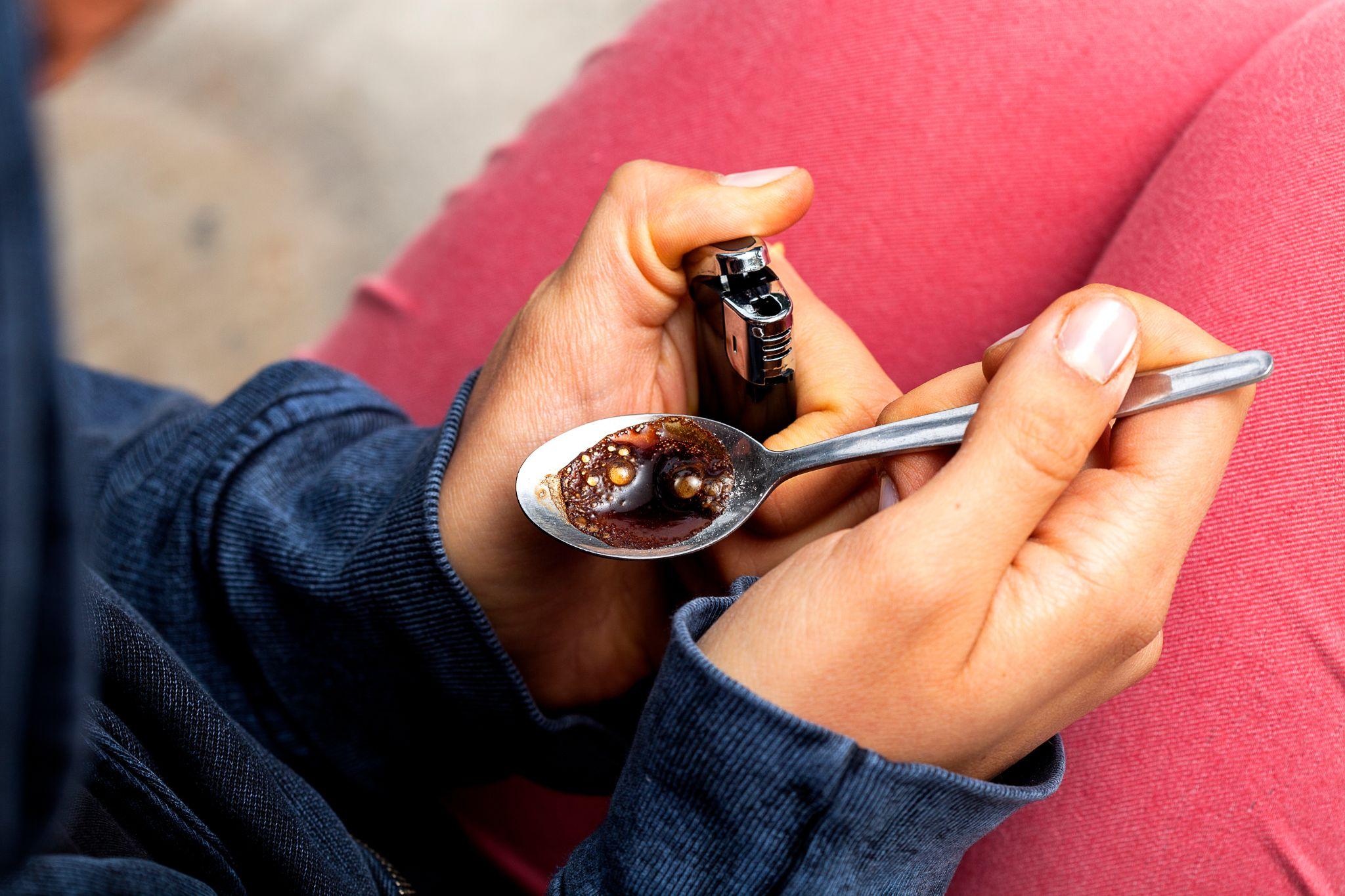
The presence of additives and impurities in heroin can significantly affect its appearance, consistency, and risk profile.
Common Additives
Heroin is often cut with a variety of substances to increase volume and profitability. Common additives that significantly increase the risk of heroin overdose include sugar, starch, powdered milk, caffeine, and other drugs like fentanyl.
These additives can change the color, texture, and overall appearance of heroin. For instance, additives like starch can make the powder appear more granular, while others might change the color.
Impurities from Production
Impurities in heroin often stem from the manufacturing process. These can include residues from the chemicals used in refining opium into heroin, such as acetic anhydride.
These impurities can have serious health implications, ranging from increased toxicity to adverse reactions. They can also affect the drug’s potency and the risk of overdose.
Dangers of Fentanyl
A significant concern is the contamination of heroin with fentanyl, a synthetic opioid much more potent than heroin. This contamination is often undetectable by appearance but dramatically increases the risk of overdose and death.
Learn More About Heroin With Lumina Recovery
Identifying heroin is a crucial step in combating its use and distribution. By understanding its various forms and characteristics, individuals and communities can be better equipped to recognize the presence of this harmful substance.
With heroin addiction services and medication-assisted treatment (MAT), Lumina Recovery has a variety of resources to help those fighting addiction.
Our team of professionals is ready to help you or a loved one get the help they need. Reach out to us today.
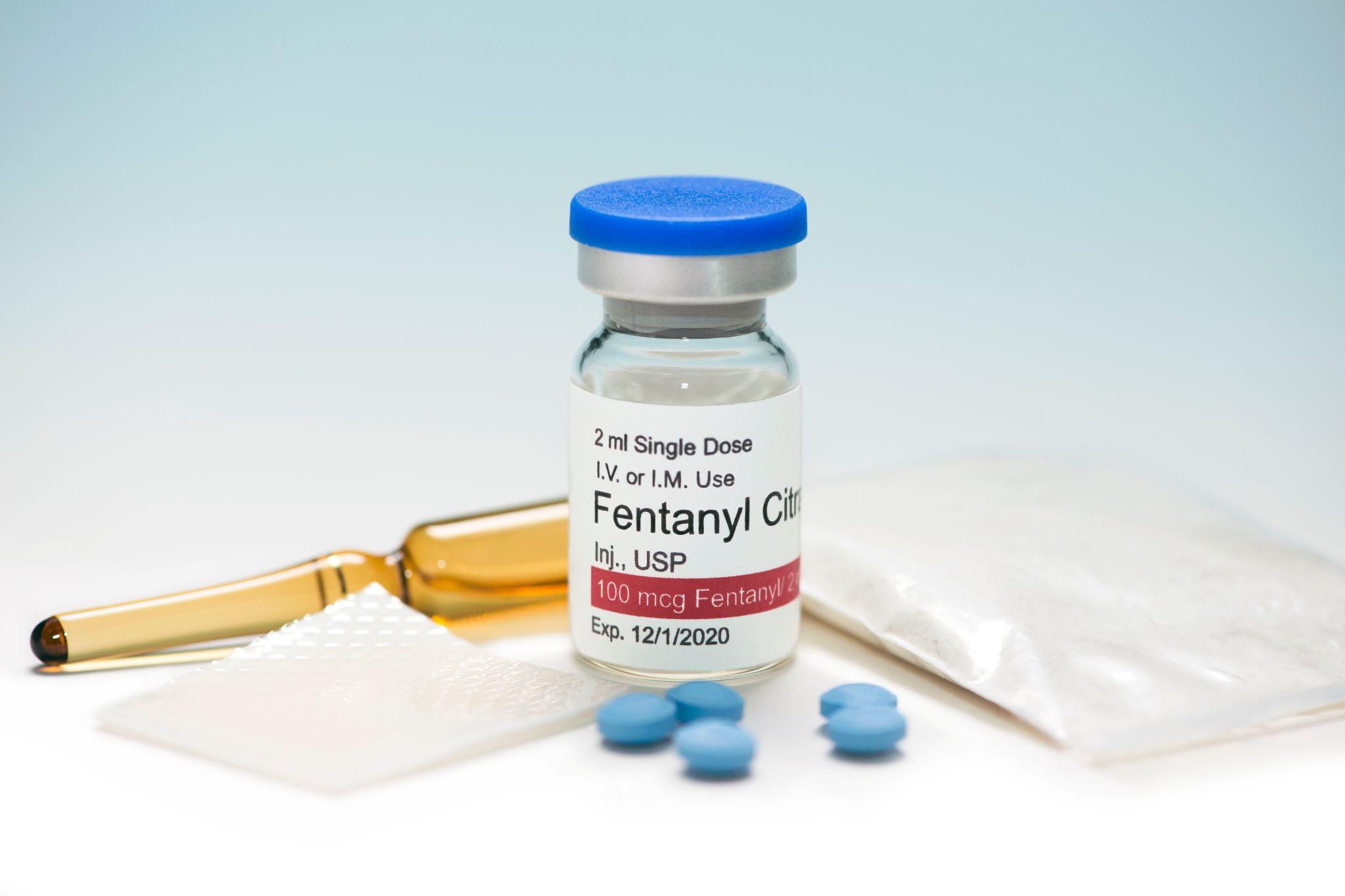
How Addictive Is Fentanyl?
Fentanyl, a synthetic opioid with the street name Dance Fever, has gained notoriety as one of the most potent and addictive substances in the opioid class. It is mainly prescribed for the management of chronic pain, especially after surgery and for patients with cancer pain.
Learning about the science behind fentanyl’s high potential for addiction, exploring how it interacts with the brain, its effects on the body, and why it poses such a significant risk for dependency and abuse is very important in understanding the addictiveness of fentanyl.
Lumina Recovery aims to provide a comprehensive understanding of fentanyl’s addictive properties, helping individuals become more aware and equipped to address this growing challenge.
How does fentanyl work?
Fentanyl acts on the central nervous system to provide pain relief and a sense of euphoria. When it enters the body, fentanyl binds to opioid receptors, primarily located in the brain, spinal cord, and other organs. These receptors are part of the body’s endogenous opioid system, which regulates pain, reward, and addictive behaviors.
The binding of fentanyl to these receptors triggers a release of dopamine in the brain’s reward pathways. Dopamine is a neurotransmitter associated with pleasure and satisfaction. This surge in dopamine not only alleviates pain but also produces a profound state of euphoria and relaxation, which is more intense than what is experienced with many other illegal drugs like heroin and cocaine.
The rapid onset of fentanyl’s effects is due to its high lipid solubility, allowing it to cross the blood-brain barrier more quickly than other opioids. This quick entry into the brain results in an immediate and powerful effect, contributing to its potential for misuse and addiction.
Additionally, fentanyl’s effects are short-lived, which can lead to frequent dosing and a higher risk of developing tolerance and dependence.
Why is fentanyl so addictive?
Fentanyl’s highly addictive nature can be attributed to several factors. Firstly, its potency is unparalleled when compared to other opioids. Being 50 times more potent than heroin and 100 times stronger than morphine, it can create an intense euphoric experience.1 This high level of potency means that smaller amounts of fentanyl can elicit strong effects, increasing the risk of addiction after only a short period of use.
Secondly, the rapidity with which fentanyl affects the brain plays a crucial role in its addictiveness. As fentanyl quickly crosses the blood-brain barrier, users experience an immediate and intense high. This rapid onset of effects is psychologically reinforcing, encouraging repeated use as the body and mind begin to associate fentanyl with immediate and powerful relief or pleasure.
The cycle of addiction to fentanyl is also accelerated by the development of tolerance. As users become habituated to the drug, they require increasingly larger doses to achieve the same level of euphoria or pain relief. This escalation in dosage not only increases the risk of addiction but also the likelihood of an overdose.
Moreover, fentanyl’s chemical structure allows it to bind very tightly to opioid receptors, creating a more pronounced effect. This strong binding contributes to the drug’s effectiveness in pain relief but also to its high addictive potential. The intense euphoria that follows fentanyl use can make the experience highly desirable, leading to compulsive drug-seeking behavior.
Finally, the psychological aspects of addiction are significant with fentanyl use. The drug can serve as a means of escape from emotional or psychological pain, creating a psychological reliance. This reliance, coupled with physical dependence and tolerance, creates a powerful cycle of addiction that can be difficult to break.
How does physical and psychological dependence develop?
Physical dependence on fentanyl develops when the body becomes accustomed to its presence and starts to rely on it to function normally. This dependency manifests as withdrawal symptoms when the drug is not taken, which can include pain, sleep disturbances, irritability, and flu-like symptoms. The severity of these symptoms often drives individuals to continue using the drug to avoid discomfort.
Psychological dependence, on the other hand, is characterized by a mental craving or compulsion to use fentanyl. This can stem from the desire to re-experience the euphoria it provides or to escape reality. Psychological dependence often involves emotional and behavioral changes, such as anxiety, depression, or social withdrawal, especially in the absence of the drug.
What is the risk of overdose?

The risk of overdose with fentanyl is exceptionally high due to its potency. Small miscalculations in dosage can lead to a lethal overdose. Symptoms of a fentanyl overdose include severe respiratory depression like slowed breathing, loss of consciousness, and reduced heart rate.
The high risk of opioid overdose is compounded when fentanyl is mixed with other substances, especially depressants like alcohol or benzodiazepines, as this can exacerbate its effects.
Naloxone is a nasal spray that can be used to reverse fentanyl overdoses. It binds to opioid receptors in the brain and reverses or blocks the effects of other opioids including fentanyl. In cases of overdose, it is imperative to call 911 or emergency medical services immediately.
What are treatment options for fentanyl addiction?
Treatment for fentanyl addiction typically involves a comprehensive approach. Medication-assisted treatment (MAT) is a cornerstone of this approach, utilizing medications such as methadone, buprenorphine, or naltrexone to manage withdrawal symptoms and reduce cravings. These medications help stabilize the patient, allowing them to engage more effectively in other treatment modalities.
Counseling and behavioral therapies are critical components of treatment. They address the psychological aspects of addiction, helping individuals understand the root causes of their substance use, develop coping strategies, and rebuild healthy life patterns. Support groups and peer support programs also play a vital role, offering a community of individuals who understand the challenges of recovery and can provide ongoing support.
Get Support for Fentanyl Addiction With Lumina Recovery
Fentanyl’s high potency and rapid onset of action make it incredibly addictive and dangerous. Recognizing the signs of addiction and seeking timely treatment are crucial steps in addressing this growing concern.
Lumina Recovery offers medication-assisted treatment (MAT) and opioid and fentanyl addiction programs to help those struggling with addiction.
Our team of professionals is here to help you or your loved ones. Contact us today to learn more.
Sources:

What Are the Side Effects of Fentanyl?
Fentanyl, a synthetic opioid, is known for its high potency and is 100 times more potent than morphine.1 Prescribed fentanyl is used medically for chronic pain management, including cancer pain, but has become a common drug of abuse.
Understanding the side effects of fentanyl is crucial because its potency increases the risk of adverse effects, dependence, and overdose. Lumina Recovery is here to shed light on the various side effects of fentanyl, both short-term and long-term, helping readers understand the risks associated with its use.
Short-Term Side Effects of Fentanyl
When fentanyl enters the body, it affects the brain quickly, leading to a range of short-term effects. These effects can vary based on the dose, the user’s tolerance, and the method of administration. Here are some common immediate side effects:
- Nausea and vomiting
- Constipation
- Sedation
- Confusion
- Drowsiness
- Respiratory depression
- Decreased heart rate
- Hypertension
- Itching
Long-Term Side Effects of Fentanyl
Continued use of fentanyl can lead to a range of long-term health issues. These are particularly concerning as they can have lasting impacts even after stopping the drug. Long-term side effects can include:
- Chronic constipation
- Breathing problems
- Immune system suppression
- Hormonal Imbalances
- Increased risk of heart problems
- Mental health disorders
- Dependence and addiction
Fentanyl Dependence and Addiction
Dependence on fentanyl can develop quickly, even after a short period of use, as the body becomes accustomed to the presence of the drug and starts relying on it to function normally. This dependence, primarily physical, often leads to tolerance, requiring increasing amounts of the drug to achieve the same effects.
Addiction, a more severe form of dependence, encompasses both physical and psychological aspects. It manifests as an overwhelming urge to use opioids including fentanyl, overpowering rational decision-making and leading to compulsive drug-seeking behavior.
The cycle of addiction is complex, often exacerbated by factors such as genetic predisposition, environmental influences, and underlying mental health issues. People addicted to fentanyl may find their relationships, work, and daily activities severely impacted. They may continue using the drug despite facing serious health, legal, or social consequences.
The psychological grip of addiction makes it challenging to quit without professional help, as it involves not only physical withdrawal but also psychological dependence. It’s important to recognize that addiction is a medical condition, not a moral failing, and compassionate, comprehensive care is essential for overcoming it.
The Risk of Fentanyl Overdose
Opioid overdose is a critical risk when using fentanyl. Its high potency means that even small amounts can cause an overdose, particularly in individuals with no opioid tolerance. An overdose of fentanyl can lead to fatal respiratory depression, where breathing becomes dangerously slow and shallow, potentially stopping altogether.
Other signs of an overdose include extreme sleepiness, an inability to wake up, a bluish tint to the skin, particularly on the lips and nails, a slow or irregular heartbeat, and loss of consciousness. Emergency medical attention is necessary if you or someone else experiences any of these symptoms.
The risk of overdose escalates when fentanyl is mixed with other substances like alcohol or illegal drugs such as heroin. The illicit production of fentanyl increases the danger, as the purity and concentration of street fentanyl can vary significantly, making it almost impossible for users to gauge a safe dosage.
These factors make fentanyl one of the most dangerous drugs in terms of overdose potential, highlighting the importance of awareness and caution.
Effects of Fentanyl Withdrawal
Withdrawal from fentanyl is often a challenging and uncomfortable process, with symptoms typically beginning within a few hours to a day after the last use and potentially lasting for a week or more.
One of the most common symptoms experienced when suddenly stopping is severe muscle and bone pain, which can be quite distressing. Alongside this, individuals often face sleep problems such as insomnia and disrupted sleep patterns. Gastrointestinal distress is also frequent, manifesting as diarrhea and vomiting, which can lead to dehydration if not properly managed.
Cold flashes, often accompanied by goosebumps, are another symptom that can cause discomfort. Additionally, many individuals experience restlessness and agitation, which can lead to involuntary leg movements. One of the most difficult symptoms to cope with is the intense and severe cravings for fentanyl, which can be a significant hurdle in the journey toward recovery.
These withdrawal symptoms not only pose physical challenges but also emotional and psychological ones, making it essential for those undergoing withdrawal to have access to healthcare professionals. Call your doctor if you start experiencing any of these symptoms.
Getting Help for Fentanyl Addiction

Seeking help for substance use disorders is a critical step on the road to recovery, and there are several effective treatment options tailored to individual needs.
- Detox programs, often the first line of treatment, provide medically supervised care to safely manage withdrawal symptoms and help individuals clear fentanyl from their bodies in a controlled environment.
- For those with severe addiction or co-occurring mental health conditions, inpatient rehab offers intensive care. This treatment option involves staying at a facility with access to round-the-clock support and therapy.
- Medication-assisted treatment (MAT) combines medications such as methadone, buprenorphine, and naltrexone with counseling and behavioral therapies to manage cravings and withdrawal symptoms, making the recovery process more manageable.
- Counseling and therapy, including approaches like cognitive behavioral therapy (CBT) and group therapy, play a crucial role in addressing the underlying causes of addiction and developing effective coping strategies.
- Additionally, support groups such as Narcotics Anonymous (NA) offer community support and encouragement, providing a network of individuals who understand the struggles associated with overcoming addiction.
Each of these treatment options plays a vital role in the journey toward recovery, offering hope and support to individuals struggling with fentanyl addiction.
Find Out More About Fentanyl and Its Effects With Lumina Recovery
Understanding the side effects of fentanyl, the risks of dependence and overdose, and the challenges of withdrawal is essential for anyone affected by this potent opioid. Remember, fentanyl addiction is treatable, and recovery is possible.
Lumina Recovery offers opioid and fentanyl addiction services and medication-assisted treatment (MAT) to help those struggling with side effects and dependency.
Contact our team of professionals to learn more and get the help you or your loved one needs.
Sources:
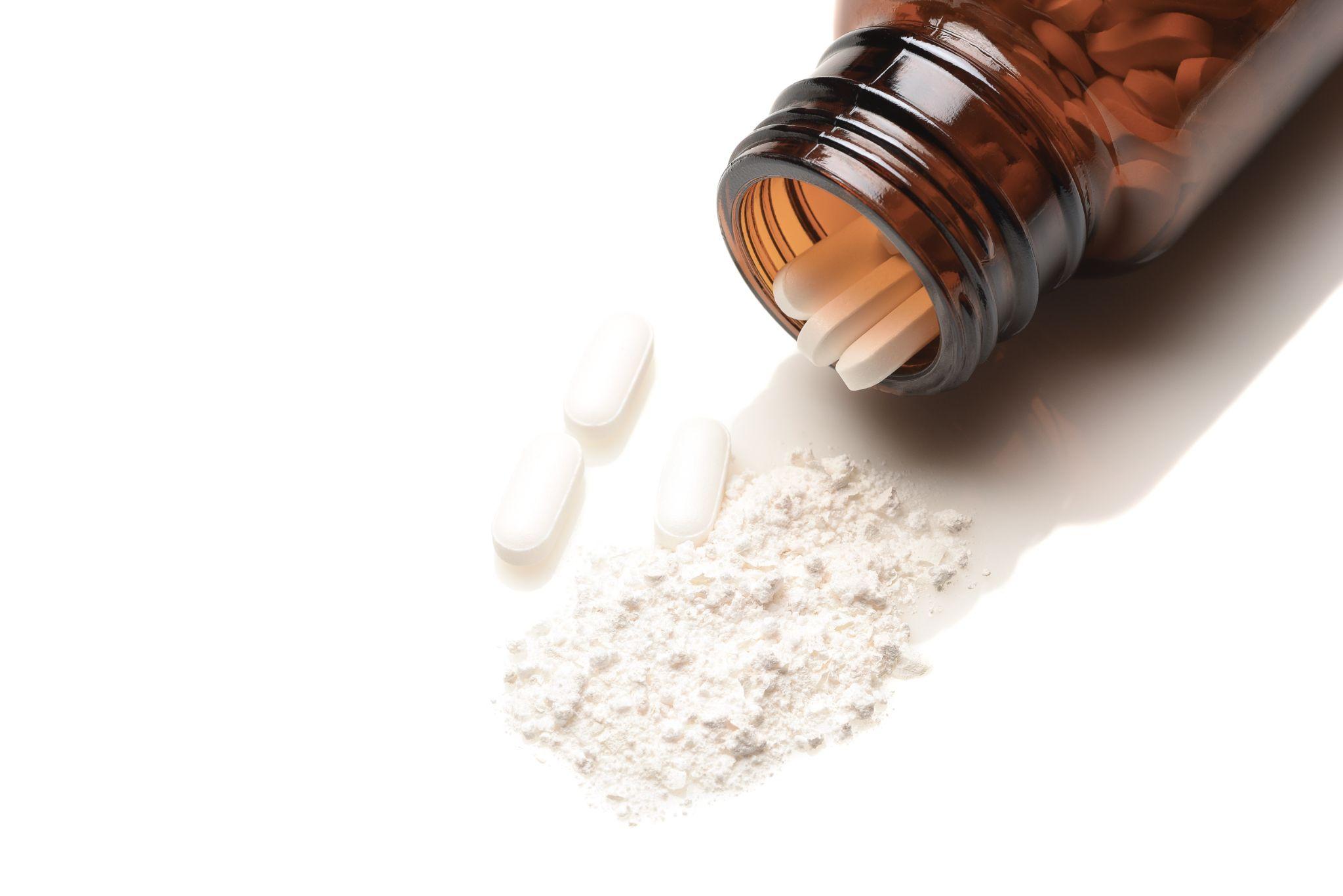
Why Is Fentanyl So Dangerous?
In recent years, the word “fentanyl” has become synonymous with the opioid crisis, striking fear in communities across the globe. But what makes this drug so dangerous?
We want to demystify fentanyl, explaining its inherent dangers and why it has become a critical concern in public health.
What is fentanyl?
Fentanyl is a synthetic opioid pain reliever, a class of drugs known for their ability to alleviate severe pain. It was initially synthesized in the 1960s in the United States and is primarily used to treat patients with chronic pain, often in cases of severe cancer pain. The drug is also used in anesthesia as a component of intravenous (IV) sedative mixtures.
Fentanyl’s chemical structure enables it to act quickly and effectively on the central nervous system. It is designed to mimic the body’s natural painkillers, endorphins, by binding to opioid receptors in the brain. When these receptors are activated, they reduce the sensation of pain and can produce a feeling of euphoria, which contributes to its potential for misuse and addiction.
One of the critical aspects of fentanyl’s potency is its high lipid solubility. This enables the drug to absorb into the blood-brain barrier at a faster pace, leading to a quick onset of effects compared to other prescription opioids. This characteristic makes it extremely effective in managing acute pain, but it also increases the risk of overdose, as the effects are felt more quickly and intensely.
Fentanyl is available in several forms, including patches, tablets, and injectable formulations. The patches release the drug slowly over time and are designed for long-term pain relief in opioid-tolerant patients. However, the illicit manufacturing of fentanyl often results in other forms, such as powders or pills, which are more dangerous due to their unregulated content and potency.
The emergence of fentanyl in the illegal drug market has been a significant factor in the opioid epidemic. Its potency and the ease with which it can be synthesized make it a common additive in other illegal drugs, often unbeknownst to the user, thereby increasing the risk of accidental overdose.
Why is fentanyl more dangerous than other opioids?
Fentanyl is considered more dangerous than many other opioids due to several key factors:
Extreme Potency. Fentanyl is significantly more potent than most other opioids. It is estimated to be about 50 to 100 times more potent than morphine and about 50 times stronger than heroin.1 This extreme potency means that even a very small amount can be lethal, making it much easier to overdose on fentanyl compared to other opioids.
Rapid Onset of Effects. Fentanyl acts very quickly in the body due to its high lipid solubility, which allows it to cross the blood-brain barrier quickly. This leads to a faster onset of its effects, which can be particularly dangerous if an overdose occurs, as there is less time to intervene and provide treatment.
Respiratory Depression. Like other opioids, fentanyl depresses the central nervous system, which can lead to slowed or stopped breathing. However, because of its potency, the risk of respiratory depression is much higher with fentanyl, making it more likely to be fatal.
Illicit Manufacturing and Mixing. Fentanyl is often illicitly manufactured and used to lace other drugs, like heroin or cocaine. This unpredictability greatly increases the risk of overdose, as users may not be aware of the presence of fentanyl and its potent effects.
Difficulty in Dosing. In a medical setting, fentanyl must be dosed very precisely due to its potency. In the context of illicit use, where dosing is not controlled, the risk of accidental overdose increases significantly.
Increased Risk of Dependence and Addiction. Due to its potent effects on the brain’s reward system, fentanyl can be highly addictive. The intense euphoria it can produce may lead to a higher risk of misuse and addiction compared to other opioids.
Threat of Overdose. Drug overdoses on fentanyl happen often due to its extreme potency. Risks of overdose include respiratory depression, cardiovascular issues, unconsciousness, choking, and mental health effects.
Fentanyl overdoses can also be more difficult to reverse than other opioid overdoses. Higher or multiple doses of naloxone, a medication used to counteract overdoses, may be necessary to avoid overdose deaths.
Contamination Risk. The potency of fentanyl also poses a risk of accidental exposure and contamination. Even small amounts can be harmful, and they can be accidentally inhaled or absorbed through the skin with other illicit drugs, posing a risk not just to users but also to bystanders, first responders, and law enforcement personnel.
What makes fentanyl so addictive?
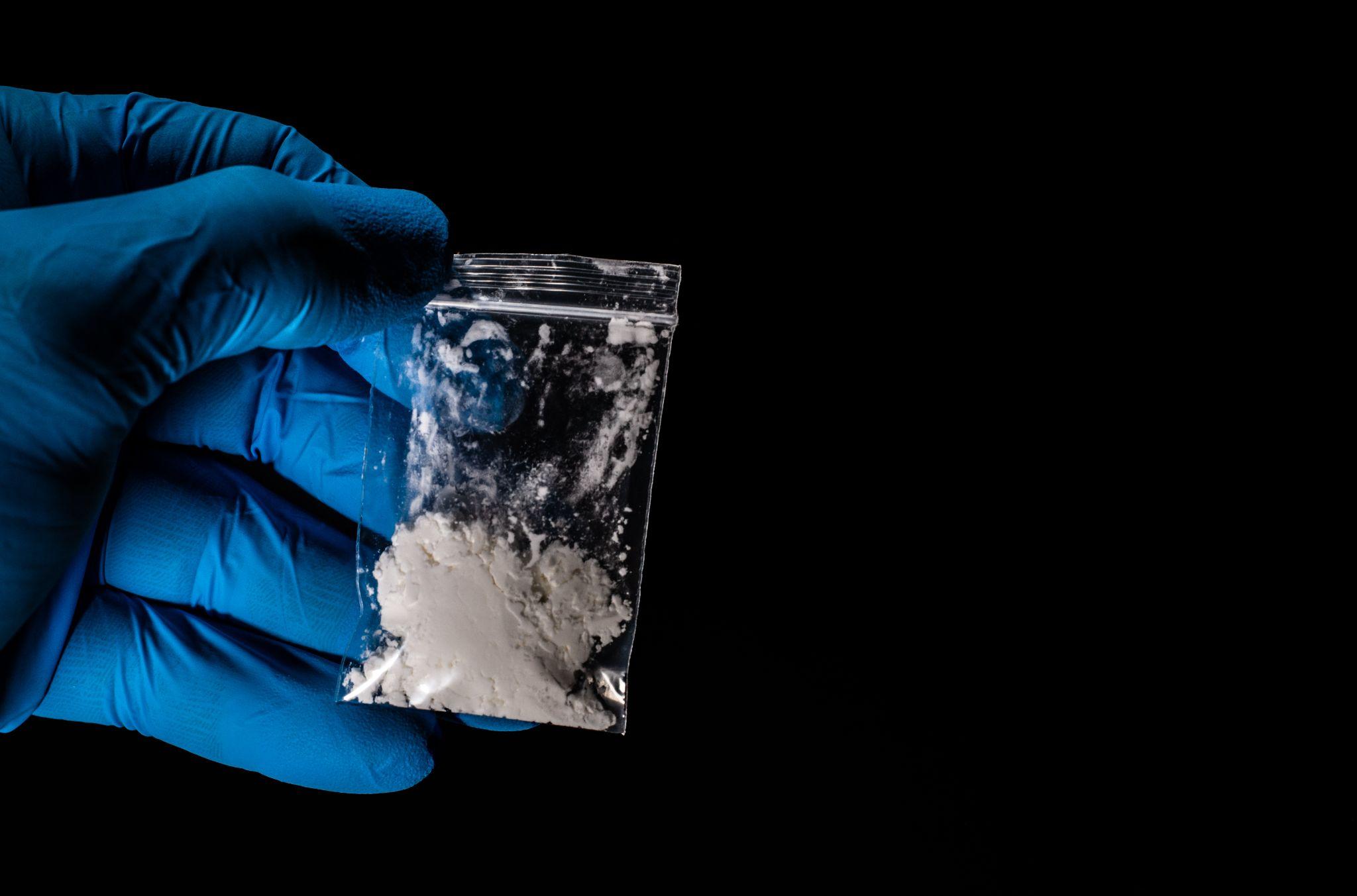
Fentanyl is highly addictive due to its extreme potency and the way it interacts with the brain’s opioid receptors. As a powerful opioid, it creates a significant release of dopamine in the brain’s reward pathways, leading to a sense of euphoria and relaxation.
This intense and rapid onset of pleasurable feelings can lead to a strong psychological desire to continue using the drug to recreate or maintain these sensations. The brain quickly adapts to the presence of fentanyl, leading to tolerance, where higher doses are required to achieve the same effects, and dependence, where the body requires the drug to function normally.
This cycle of tolerance and dependence significantly contributes to the addictive potential of fentanyl.
What are the signs of fentanyl addiction?
The signs of fentanyl addiction can be both behavioral and physical.
Behaviorally, individuals may show increased secrecy, withdrawal from social activities, changes in social groups, neglect of responsibilities, and risky behaviors to obtain the drug.
Physically, signs may include noticeable changes in sleep patterns, weight loss or gain, flu-like symptoms (especially during withdrawal), reduced attention to personal hygiene, and signs of injection drug use in some cases.
Additionally, one of the most telling signs is the continued use of fentanyl despite the awareness of its negative consequences, including health problems, strained relationships, or legal issues. Recognizing these signs is crucial for early intervention and treatment.
Understand the Risk of Fentanyl With Lumina Recovery
Fentanyl’s extreme potency and rapid onset of effects make it a particularly dangerous substance, with a high potential for overdose and death. Understanding the dangers of fentanyl is vital to combat the opioid crisis.
Lumina Recovery offers opioid and fentanyl addiction services as well as medication-assisted therapy (MAT) to help those struggling with addiction.
Reach out to our team of professionals today to learn more about your options and resources for treating opioid addiction.
Sources:
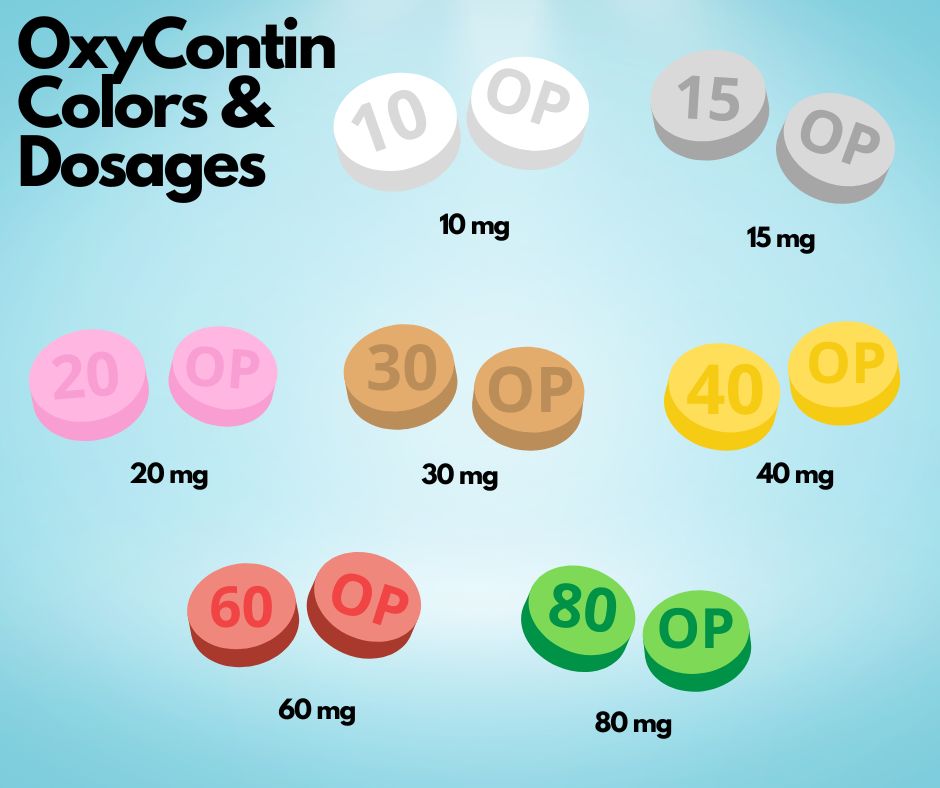
What Does OxyContin Look Like?
In today’s world, where the opioid crisis continues to impact lives and communities, understanding and identifying medications like OxyContin is more important than ever.
OxyContin, a powerful opioid prescribed for severe pain management, has been at the forefront of discussions on prescription drug abuse and opioid addiction. Street names for the drug include Oxy, Hillbilly Heroin, and Blue.
Its potency and potential for dependency make it a drug that requires careful handling and heightened awareness. The ability to identify OxyContin is not only crucial for those prescribed this medication but also for their families, educators, and community members.
Recognizing OxyContin can be the first step in preventing its misuse and addressing the broader challenges of opioid addiction. Demystifying OxyContin includes providing clear and accessible information to help you identify this medication, understand its uses, and recognize the signs that may indicate misuse.
What Is OxyContin?
OxyContin, known generically as oxycodone, is an opioid medication primarily used for the management of moderate to severe pain. This medication is part of the opioid analgesics group, drugs that modify the brain’s pain perception and consequently provide relief.
OxyContin is unique in its formulation, designed to release its active ingredient slowly over time, providing prolonged pain relief. This slow-release property, while beneficial for pain management, also makes it a target for misuse.
One of the key aspects of OxyContin is its potential for dependence and addiction. It’s essential to understand that even when used as prescribed, OxyContin can lead to physical dependence.
This dependency can evolve into addiction, characterized by compulsive drug-seeking behavior and use despite harmful consequences. The risk of OxyContin addiction is higher if the drug is used in a way not prescribed, such as crushing and snorting the pills or using them without a medical need.
Identifying OxyContin
OxyContin comes in various dosages, each indicated by different markings and colors on the pills. These dosages range from 10 mg to 80 mg. This is specifically for the OxyContin brand, as generic versions may differ.
OxyContin pills look like round tablets and are often marked with the letter “OC” or the new formulation mark “OP,” followed by the dosage strength. For example, an OxyContin 80 mg pill should say “OP 80.”
Pictures of OxyContin will show that the color of the pills corresponds to their strength, with lower dosages often being lighter and higher dosages being darker:
- 10 mg pills are white
- 15 mg pills are gray
- 20 mg pills are pink
- 30 mg pills are brown
- 40 mg pills are yellow
- 60 mg pills are red
- 80 mg pills are green
It’s crucial to recognize that there are counterfeit versions of OxyContin in circulation. These fake pills may contain other dangerous substances, including fentanyl, a powerful and potentially deadly opioid.
Therefore, it’s important to obtain OxyContin strictly through a prescription from a licensed healthcare provider and to be vigilant about the drug’s appearance and source.
Risks of Misidentification
Misidentifying OxyContin poses significant risks to both individuals and communities. One of the primary dangers is the potential for accidental overdose.
OxyContin, like other opioids, can depress the respiratory system. If a person unknowingly takes a higher dose than their body can handle, it can lead to respiratory failure and, in severe cases, death. This risk is exacerbated when counterfeit pills are involved. These fake pills often contain inconsistent and dangerously high levels of opioids, like fentanyl, which is much more potent than oxycodone.
Another risk is the possibility of harmful drug interactions. Without proper identification, a person might unknowingly combine OxyContin with other medications or substances that can lead to adverse reactions. For instance, mixing opioids with alcohol or benzodiazepines can significantly increase the risk of respiratory depression, leading to life-threatening situations.
The misidentification can also hinder effective treatment for pain or addiction. If a medical professional or caregiver is unaware that a patient is using OxyContin, they might prescribe a treatment regimen that either doesn’t address the opioid dependence or inadvertently puts the patient at risk of further complications.
Furthermore, the misuse of misidentified OxyContin can accelerate the path to addiction. Individuals may start with what they believe is a low dose or a less potent opioid, not realizing they are consuming OxyContin. This misunderstanding can lead to a quicker onset of tolerance and dependence, escalating to addiction more rapidly than anticipated.
In a broader context, the misidentification and subsequent misuse of OxyContin contribute to the larger opioid crisis. It fuels the cycle of addiction and overdose that affects individuals, families, and communities. Therefore, accurate identification is not just a personal safety issue—it’s a public health imperative.
When to Seek Help

An indicator of when to seek help is a noticeable change in behavior or health. This might include neglecting responsibilities, withdrawing from social activities, or showing signs of physical health decline like weight loss, changes in sleep patterns, or frequent flu-like symptoms. These changes often accompany the misuse of OxyContin and other opioids.
Physical dependence on the drug is another warning sign. Dependence can manifest as withdrawal symptoms when the drug is not taken. These symptoms might include nausea, sweating, agitation, and anxiety. It’s important to understand that dependence can develop even with prescribed use, making it crucial to follow medical guidance closely and seek help if dependency signs emerge.
Help should be sought from professional healthcare providers like those at Lumina Recovery. This includes doctors, addiction specialists, and mental health professionals. They can provide the necessary medical and psychological support, including treatment options like medication-assisted treatment (MAT), counseling, and support groups. These resources are vital for safe withdrawal, treatment of addiction, and long-term recovery.
As of 2024, OxyContin is still available, but there are some important considerations to keep in mind. The U.S. Drug Enforcement Administration (DEA) has been implementing reductions in the supply of various opioids, including oxycodone. These reductions are part of ongoing efforts to manage the risk of diversion, abuse, and overdose associated with these medications.
Navigate Opioid Challenges With Lumina Recovery
Identifying OxyContin is a crucial skill that can aid in preventing misuse and promoting timely intervention. By being informed about OxyContin indications such as appearance and risks, you can play a role in addressing the challenges posed by opioid misuse in your community.
Lumina Recovery has opioid addiction programs as well as medication-assisted treatment (MAT) to help those struggling with addiction.
Contact our team today to learn more about the help we can offer you or your loved ones.
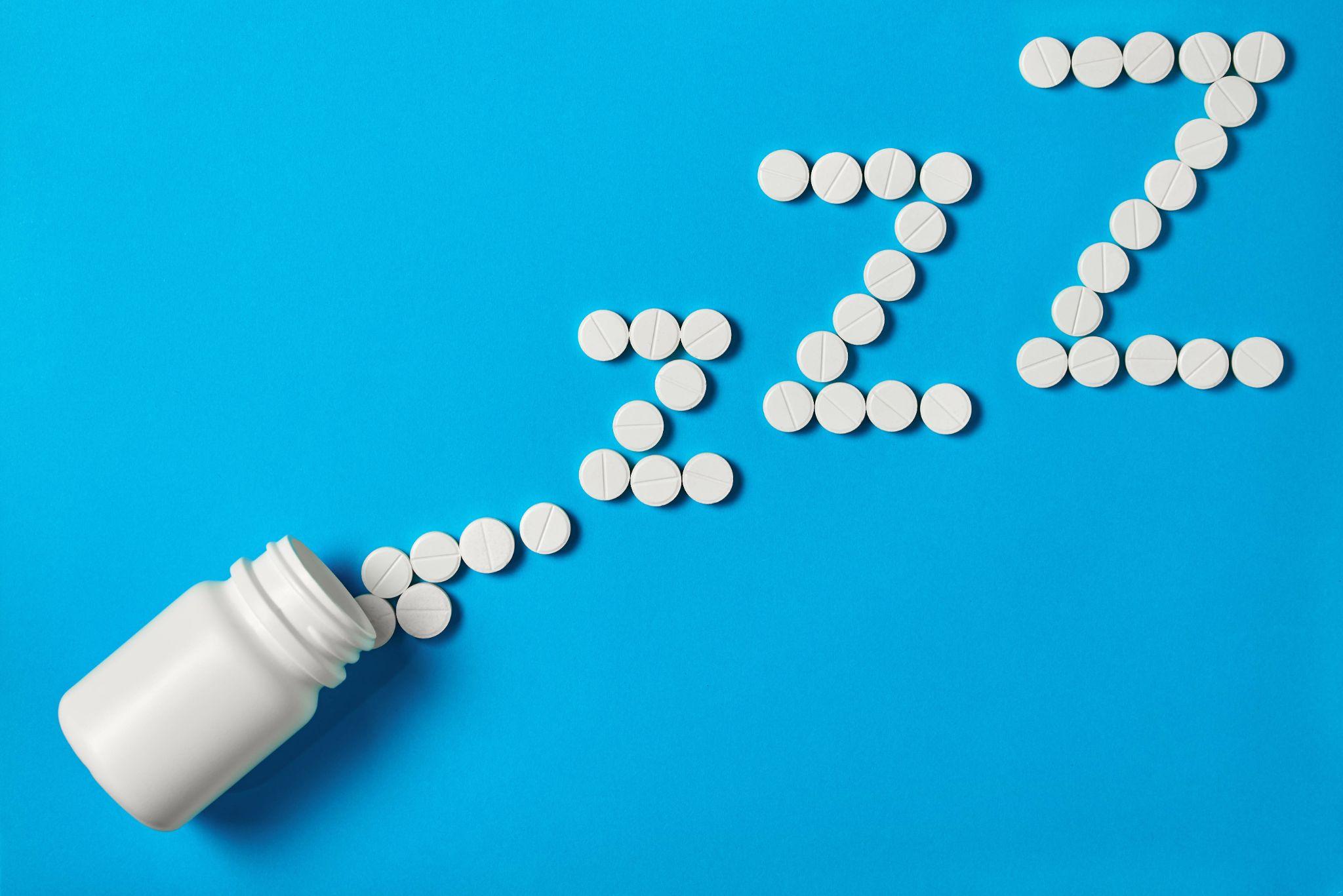
Can Trazodone Be Abused or Become Addictive?
Trazodone, a medication primarily prescribed for depression and insomnia, has gained attention not only for its therapeutic uses but also for potential abuse.
While it’s not as commonly abused as some other prescription drugs, understanding its abuse potential is crucial for patients and healthcare providers alike. At Lumina Recovery, we aim to shed light on the realities and risks associated with trazodone misuse.
What is trazodone?
Trazodone is primarily an antidepressant, belonging to the class of medications known as serotonin antagonist and reuptake inhibitors (SARIs). Trazodone is the generic name for the drug, while Desyrel and Oleptro are some of the brand names.
Unlike other antidepressants, trazodone works by having a unique pharmacological profile, targeting multiple neurotransmitter pathways. It’s known for its ability to balance serotonin levels, which plays a key role in mood regulation.
Additionally, trazodone affects other neurotransmitters like norepinephrine and histamine, contributing to its sedative properties. This dual action makes it effective not only in managing symptoms of depression but also in addressing insomnia, often seen in patients with depression.
However, its effectiveness in treating major depressive disorders and its sedative qualities can sometimes lead to misuse, especially in individuals seeking relief from insomnia or anxiety.
Is trazodone addictive?
Trazodone is generally not considered highly addictive, especially when compared to other substances like opioids or benzodiazepines. However, it can still be misused, and some individuals may develop a substance use disorder.
Dependence on trazodone can occur particularly in cases where it is used for a prolonged period, at higher doses than prescribed, or used in a way not intended by the prescribing physician. People who have a history of substance abuse or addiction may be at a higher risk of developing dependence on the drug.
Trazodone overdoses are also possible. Taking it in amounts exceeding the prescribed or recommended dosage can lead to an overdose, which can be dangerous and potentially life-threatening.
Physical dependence on trazodone can lead to withdrawal symptoms when the medication is reduced or stopped. Psychological dependence, where a person feels unable to function without the drug, can also develop. This is particularly true for those using trazodone for its sedating effects to manage insomnia or anxiety.
While dependence is a concern, it’s important to differentiate it from addiction, which is characterized by compulsive drug-seeking behavior despite harmful consequences. Trazodone is less likely to cause such addictive behaviors compared to more potent substances.
As always, trazodone should be used strictly according to a healthcare provider’s instructions, and any concerns about dependence or side effects should be discussed with a medical professional.
What are the signs of trazodone abuse?
Recognizing the effects of trazodone abuse involves observing changes in behavior and physical health. Key indicators include:
- Taking the medication in higher doses or more frequently than prescribed
- Doctor shopping or visiting multiple doctors to obtain extra prescriptions
- Using trazodone without a prescription, especially for sleep or recreational purposes
- Developing a tolerance, where higher doses are needed to achieve the same effect
- Experiencing withdrawal symptoms when not taking the medication, which can include anxiety, agitation, and sleep disturbances
- Changes in daily activities and responsibilities, often neglecting work, family members, or social obligations
- Physical side effects such as dizziness, blurred vision, or coordination problems, especially at higher doses
What are the withdrawal symptoms of trazodone?
Withdrawal symptoms from trazodone can occur when a person who has been using the medication regularly and for a prolonged period abruptly stops or significantly reduces their dose.
These symptoms can vary in intensity and duration depending on factors such as the dosage, duration of use, and the individual’s physiology. Common withdrawal symptoms include:
- Dizziness
- Headache
- Nausea
- Agitation
- Flu-like symptoms
- Fatigue
- Sweating
- Muscle aches
- Anxiety
- Depression
- Difficulty sleeping (insomnia)
Symptoms of insomnia can be particularly pronounced if trazodone was initially prescribed for sleep disorders. It’s important to note that abruptly stopping trazodone can lead to uncomfortable and potentially severe withdrawal symptoms.
Therefore, it is generally advised to gradually taper off the medication under the guidance of a healthcare professional to minimize withdrawal effects.
How is trazodone addiction treated?

Treating trazodone addiction, like other forms of substance dependence, typically involves a comprehensive approach that addresses both the physical and psychological aspects of addiction. The main components of treatment usually include:
Detoxification. If physical dependence has developed, the first step is often a medically supervised detox process. This process allows for safe withdrawal from trazodone under healthcare professionals’ supervision. They can manage withdrawal symptoms and ensure the patient’s safety. Gradual tapering off the medication is often recommended instead of abrupt cessation to reduce the severity of withdrawal symptoms.
Therapy and Counseling. Psychological support is crucial in addiction treatment. This can include cognitive behavioral therapy (CBT), which helps patients identify and change thought patterns and behaviors related to drug abuse. Counseling can also address underlying issues such as depression, anxiety, or other mental health disorders that may have contributed to the misuse of trazodone.
Treatment of Underlying Conditions. If trazodone was initially prescribed to treat health issues like depression or insomnia, it’s important to find alternative ways to manage these conditions without reliance on trazodone. This might involve other types of medications or therapy methods.
Aftercare Planning. Long-term recovery requires a sustainable plan that may include ongoing therapy, support group meetings, lifestyle changes, and strategies to prevent relapse. This is a crucial part of treatment, as it helps to maintain the gains achieved during the initial treatment phase.
Lifestyle Changes and Holistic Therapies. Incorporating healthy lifestyle changes such as regular exercise, a balanced diet, and stress management techniques can be beneficial. Holistic therapies like yoga, meditation, and acupuncture may also be helpful for some individuals.
Understand Trazodone and Addiction With Lumina Recovery
While trazodone is not as prone to abuse as some prescription drugs, it’s important to remain vigilant. Understanding the risks, signs of abuse, and methods of prevention can help in managing its use effectively and safely.
Lumina Recovery offers prescription drug rehab programs and dual diagnosis services to help those dealing with addiction.
Reach out to our team today to learn more about our services and resources to help you or a loved one.
Additional Resources
Once you have completed your rehabilitation program at one of our drug and alcohol treatment centers, you should try to surround yourself with people who can encourage you to stay sober. Many people find that support groups are the best source of encouragement. You can find hundreds of support groups and meetings in your community. Our drug addiction treatment centers stress the importance of personal chemical dependency resources, especially when you are new to sobriety. Below are various addiction and mental health resources for people in recovery who want additional support.
Christian Addiction Recovery Resources
Our substance abuse services aren’t limited to specific programs, but rather we believe in the importance of incorporating faith-based programs to promote spiritual healing, like our Faith in Recovery program.
With that said, below are some faith-based addiction recovery resources that could help you in your spiritual healing from addiction:
- Battlefield of the Mind by Joyce Meyer
- Boundaries by Dr. Henry Cloud & Dr. John Townsend
- Christian Families in Recovery: A Guide for Addiction, Recovery, and Intervention Using God’s Tools of Redemption by Robert and Stephanie Tucker
- Club New Life Christian Ministry for Addiction and Recovery
- Lost & Found: Recovery in Christ by Bruce Stanley
- Overcoming Emotional Obstacles through Faith: Navigating the Mind Field by Anthony Acampora, Director of Banyan’s Faith in Recovery Program
- The Case for Christ by Lee Strobel
Mental Health Resources for Recovery
Lumina Recovery consist of both mental health and substance abuse treatment facilities, meaning we offer mental health resources as well as chemical dependency resources. What’s more, addiction often co-occurs with mental illness, making these resources ever more important.
Below are some resources for mental health recovery that can help you or your loved one:
- This Emotional Life video series
- No Kidding, Me 2!! with Joe Pantoliano
- Dare: The New Way to End Anxiety and Stop Panic Attacks by Barry McDonagh
- Pleasure Unwoven: An Explanation of the Brain Disease of Addiction by Kevin McCauley
- Declutter Your Mind: How to Stop Worrying, Relieve Anxiety, and Eliminate Negative Thinking by S.J. Scott and Barrie Davenport
Call Us Today – (877) 716-7515

